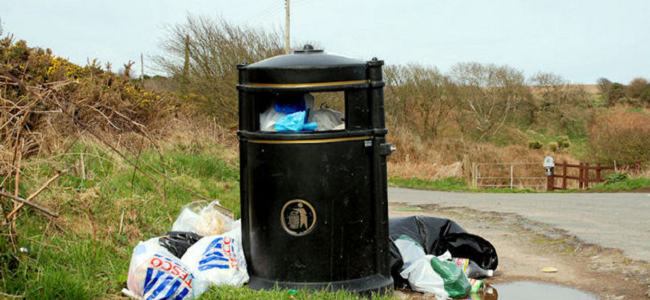There is no denying that achieving such a change is not the work of this generation alone but also that of many generations to come. While this is not something that is going to happen overnight, what is undeniable is that the young people of today will play an absolutely crucial role in this process.
"Adding litter to the long list of ‘things a young person must not do’ is unlikely to have a dramatic effect – at least not a lasting one."
However, adding litter to the long list of ‘things a young person must not do’ is unlikely to have a dramatic effect – at least not a lasting one. While an eight year old might be excited by their role as an ambassador for the local environment, by the time they are 14, they are likely to enjoy far more the idea of rebelling against it. Their actions alone are not going to make any sort of real difference, they may think, so why bother in the first place?
In my mission to encourage pupils and students to do their bit, love where they live and put their rubbish in the bin – not only today and tomorrow but in five, 10 even 50 years to come – there are a number of principles that I’ve found to be absolutely vital in ensuring that these important messages are not only being heard but acted upon, over time, too
- First and foremost, it is important to create an honest and open environment where experiences are shared.Children should be made to realise that everyone has littered at one point or another in their lives: it is down to everyone to consciously decide to dispose of their waste responsibly, if we are to effectively keep our schools and environment clean and tidy.
- Secondly, it is much easier to make the potentially ‘uncool’ subject of litter engaging if this is approached in a fun and inspiring way.Employing humour and interaction in order to motivate children or young people to make positive choices when it comes to waste disposal, rather than simply telling them to, can make all the difference.
- Encouraging children to think about why we litter, the impact this has on our surroundings and how that makes us feel versus an alternative scenario is also an effective way of helping them realise their role in achieving this. What if your local park wasn’t scattered with empty cans and plastic bags? What if you didn’t have to dodge floating bits of rubbish in the sea when you go on holiday? Or what if the pavement outside your house wasn’t always stained and dirty?
- Money matters – even if you are 10. Highlighting to children that littering is illegal and that if they are caught disposing of their waste irresponsibly, they could face a fine of up to £80 is also key to the honesty approach, translating a concept into material and very tangible terms.
- Coming up with a memorable slogan or rhyme that might come to mind when a child is thinking about how they are going to dispose of their waste can be helpful. Having something quick and catchy to remind them to do the right thing and put it in a bin can go a long way!
Achieving a sustainable solution to the issue of litter is by no means an easy feat – however, it is through encouraging understanding of the issue at heart and fostering a sense of community and group effort that the change in attitude we all want – and indeed need – can eventually be achieved.
How do you tackle littering in your school? Let us know in the comments.


















